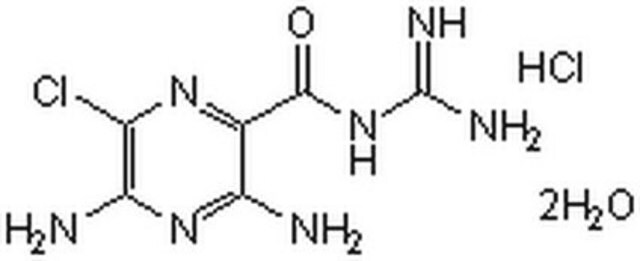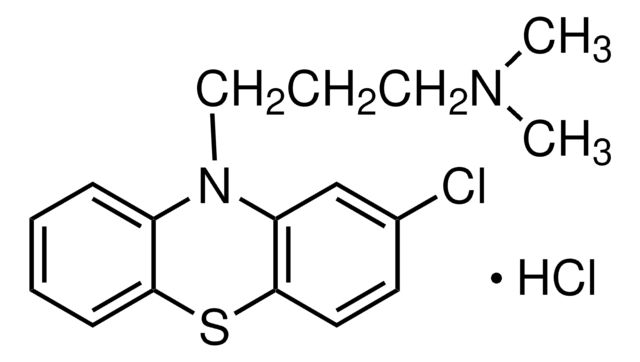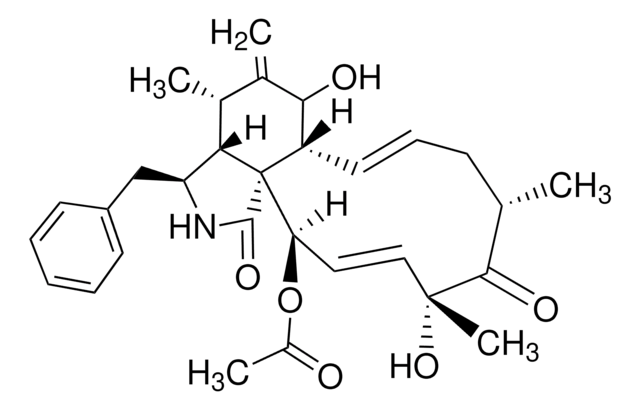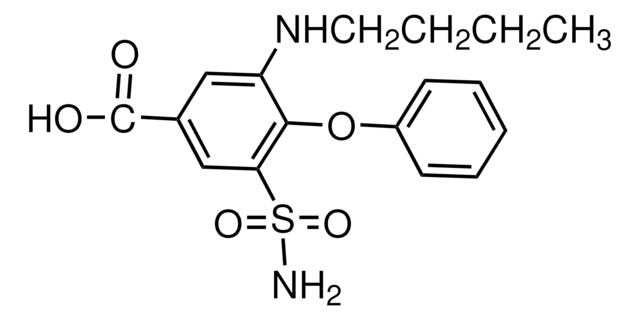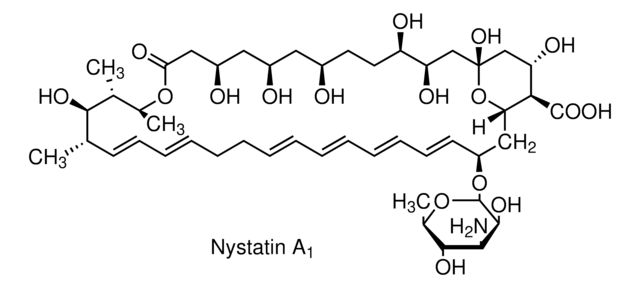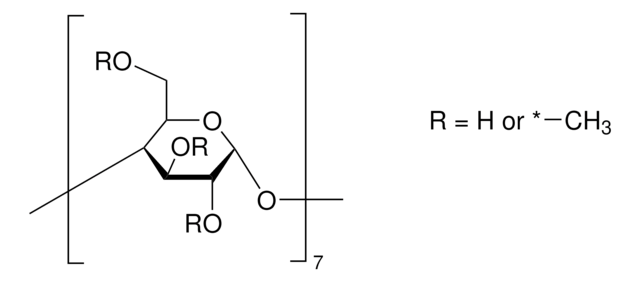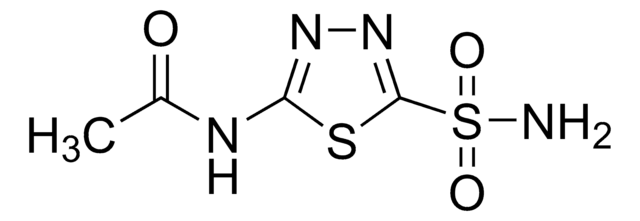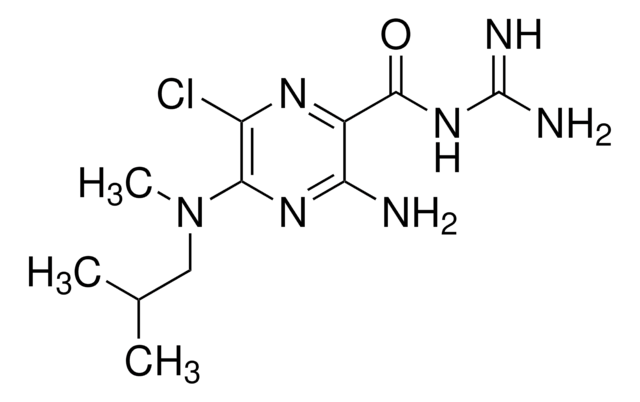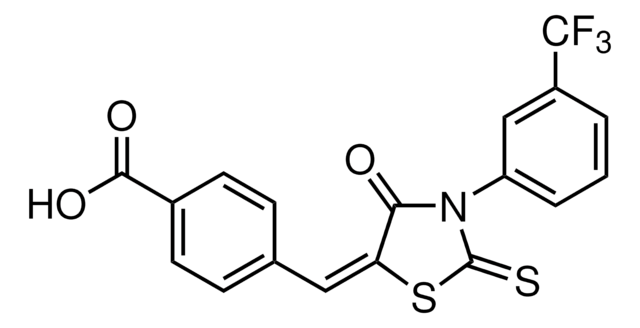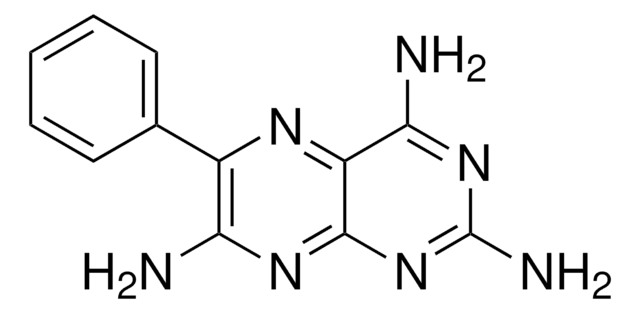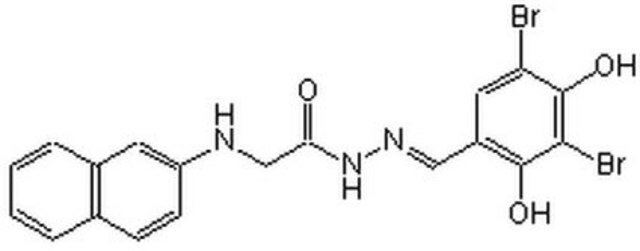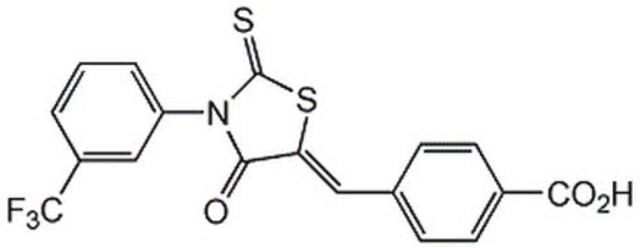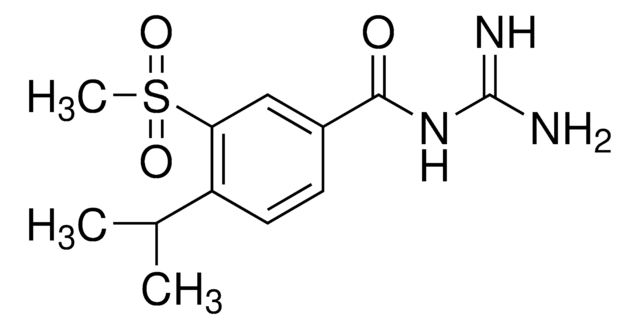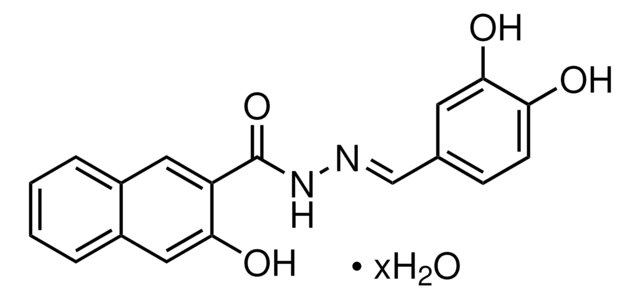A7410
Amiloride hydrochloride hydrate
≥98% (HPLC), powder, T-type calcium channel blocker
Synonym(s):
N-Amidino-3,5-diamino-6-chloropyrazinecarboxamide hydrochloride hydrate
About This Item
Recommended Products
Product Name
Amiloride hydrochloride hydrate, ≥98% (HPLC), powder
Assay
≥98% (HPLC)
form
powder
color
yellow
mp
285-288 °C (dec.)
solubility
H2O: 50 mg/mL, clear, yellow-green
originator
Perrigo
storage temp.
room temp
SMILES string
O.Cl.NC(=N)NC(=O)c1nc(Cl)c(N)nc1N
InChI
1S/C6H8ClN7O.ClH.H2O/c7-2-4(9)13-3(8)1(12-2)5(15)14-6(10)11;;/h(H4,8,9,13)(H4,10,11,14,15);1H;1H2
InChI key
WDZJJRLYFQNCQL-UHFFFAOYSA-N
Gene Information
human ... ABP1(26) , ACCN1(40) , ACCN2(41) , PLAU(5328) , SCNN1A(6337) , SCNN1B(6338) , SCNN1D(6339) , SCNN1G(6340) , SLC9A1(6548) , TNF(7124)
mouse ... Abp1(76507) , Accn1(11418) , Accn2(11419) , Plau(18792) , Scnn1a(20276) , Scnn1b(20277) , Scnn1d(140501) , Scnn1g(20278) , Slc9a1(20544)
rat ... Abp1(65029) , Accn1(25364) , Accn2(79123) , Plau(25619) , Scnn1a(25122) , Scnn1b(24767) , Scnn1g(24768) , Slc9a1(24782)
Application
Biochem/physiol Actions
Features and Benefits
Caution
Signal Word
Danger
Hazard Statements
Precautionary Statements
Hazard Classifications
Acute Tox. 3 Oral
Storage Class Code
6.1C - Combustible acute toxic Cat.3 / toxic compounds or compounds which causing chronic effects
WGK
WGK 3
Flash Point(F)
Not applicable
Flash Point(C)
Not applicable
Personal Protective Equipment
Choose from one of the most recent versions:
Already Own This Product?
Find documentation for the products that you have recently purchased in the Document Library.
Customers Also Viewed
Articles
Analysis of 20 pharmaceutical compounds in calf serum using Supel™ Swift HLB SPE cartridge for cleanup and LC-MS determination and another commercially available HLB cartridge for comparison.
Related Content
Discover Bioactive Small Molecules for ADME/Tox
Our team of scientists has experience in all areas of research including Life Science, Material Science, Chemical Synthesis, Chromatography, Analytical and many others.
Contact Technical Service